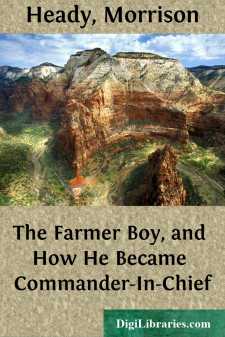Categories
- Antiques & Collectibles 13
- Architecture 36
- Art 48
- Bibles 22
- Biography & Autobiography 813
- Body, Mind & Spirit 142
- Business & Economics 28
- Children's Books 17
- Children's Fiction 14
- Computers 4
- Cooking 94
- Crafts & Hobbies 4
- Drama 346
- Education 46
- Family & Relationships 57
- Fiction 11829
- Games 19
- Gardening 17
- Health & Fitness 34
- History 1377
- House & Home 1
- Humor 147
- Juvenile Fiction 1873
- Juvenile Nonfiction 202
- Language Arts & Disciplines 88
- Law 16
- Literary Collections 686
- Literary Criticism 179
- Mathematics 13
- Medical 41
- Music 40
- Nature 179
- Non-Classifiable 1768
- Performing Arts 7
- Periodicals 1453
- Philosophy 64
- Photography 2
- Poetry 896
- Political Science 203
- Psychology 42
- Reference 154
- Religion 513
- Science 126
- Self-Help 84
- Social Science 81
- Sports & Recreation 34
- Study Aids 3
- Technology & Engineering 59
- Transportation 23
- Travel 463
- True Crime 29
Sort by:
COME LASSES AND LADS Come Lasses and Lads, get leave of your Dads, And away to the May-pole hey: For every heHas got him a she,with a minstrel standing by. ForWillyhas gotten hisJill,And Johnnyhas got hisJone,To jigg it, jigg it, jigg it, jigg it,Jigg it up and down. "Strike up," saysWatt; "Agreed," saysKate,"And I prithee, Fiddler, play;""Content," saysHodge, and so...
more...
INTRODUCTION Behind any human institution there stand a few men—perhaps only one man—who direct its movement, protect its interests, or serve as its mouthpiece. This applies to nations. If we wish to know for what a nation stands and what are its ideals and by what means it seeks to realise them, we shall do well to know something of the men who lead its people or express their feelings. It is of...
more...
CHAPTER IX. FROM NORFOLK TO CAPE HATTERAS. THE ELIZABETH RIVER. — THE CANAL. — NORTH LANDING RIVER. — CURRITUCK SOUND. — ROANOKE ISLAND. — VISIT TO BODY ISLAND LIGHT-HOUSE. — A ROMANCE OF HISTORY. — PAMPLICO SOUND. — THE PAPER CANOE ARRIVES AT CAPE HATTERAS. On Saturday morning, December 5, I left the pier of the Old Dominion Steamship Company, at Norfolk, Virginia, and, rowing across...
more...
by:
Morrison Heady
The reader will remember, that, in the preface of "The Printer Boy," I promised the next volume should be "The Farmer Boy; or, How George Washington became President." That pledge has never been redeemed, though some labor has been performed with reference to it. And now Providence seems to direct the fulfilment of the promise by the pen of another, soon to be well known, I doubt not,...
more...
by:
A. Stanley Blicq
Fed up! Every man of the Ten Hundred was fed up. Thirty-six hours cooped in cattle trucks, thirty or forty in a truck and inhaling an atmosphere that would have disgusted a pig—enough to feed anyone up. The Belgian frontier was crossed at sunset and the fringe of war's devastation penetrated. Little interest or casual comment was aroused, although a reputable thirsty one remarked that he thought...
more...
CHAPTER I. THE rain had poured in torrents all day, and now, for the third time since morning, I came home, wet, uncomfortable and weary. I half dreaded to look at the slate, lest some urgent call should stare me in the face. "It must indeed be a case of life and death, that takes me out again to-night," said I, as my good wife met me in the entry, and with light hands, made active by love,...
more...
LECTURE I [Greek: "Hêmin de apodeikteon hôs ep' eutuchia tê megistê para Theôn hê toiautê mania didotai hê de dê apodeixis estai deinois men apistos, sophois de pistê"] PLATO, Phædrus, p. 245. "Thoas. Es spricht kein Gott; es spricht dein eignes Herz. Iphigenia. Sie reden nur durch unser Herz zu uns." GOETHE, Iphigenie. "Si notre vie est moins qu'une...
more...
by:
Miriam Gaines
I. "O, Auntee, what is it?" The awed young voice paused at the threshold. It was a sight the little girl had never witnessed before—she had seen Auntee sad at occasional intervals, and a few times had looked upon tears in the usually merry eyes of her beloved chum, but never before had she beheld Auntee sobbing in such an abandonment of grief. There was a very tender tie of love between these...
more...
by:
Oliver Optic
CHAPTER I. IN WHICH BOBBY GOES A FISHING, AND CATCHES A HORSE. "By jolly! I've got a bite!" exclaimed Tom Spicer, a rough, hard-looking boy, who sat on a rock by the river's side, anxiously watching the cork float on his line. "Catch him, then," quietly responded Bobby Bright, who occupied another rock near the first speaker, as he pulled up a large pout, and, without any...
more...
by:
Horatio Alger
Chapter I.—The First Pair Of Shoes. From a small and rudely-built log-cabin a sturdy boy of four years issued, and looked earnestly across the clearing to the pathway that led through the surrounding forest. His bare feet pressed the soft grass, which spread like a carpet before the door. "What are you looking for, Jimmy?" asked his mother from within the humble dwelling. "I'm...
more...











